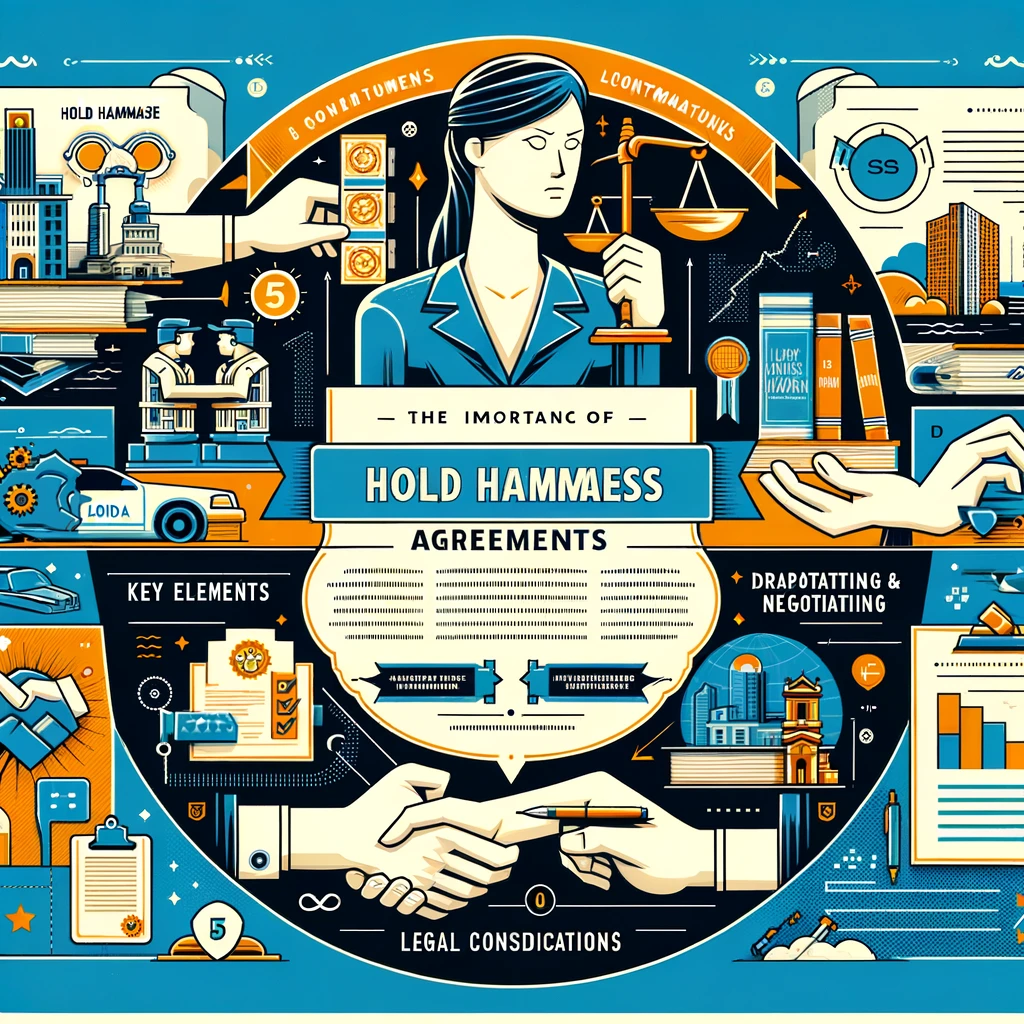Navigating Hold Harmless Agreements in Florida: A Comprehensive Guide
In the complex landscape of legal agreements, the hold harmless clause, also known as an indemnity agreement, plays a crucial role in managing liability and risk. Particularly in Florida, understanding the nuances of hold harmless agreements is essential for businesses, contractors, and individuals looking to safeguard against potential legal complications. This article delves into the intricacies of hold harmless agreements in Florida, offering over 2000 words of insights supported by authoritative .gov, .edu, and Wikipedia links to enhance reliability and comprehension.

What is a Hold Harmless Agreement?
A hold harmless agreement is a legal document that transfers the risk of potential legal claims or liabilities from one party to another. Essentially, one party agrees not to hold the other responsible for any harm, liability, or loss that may arise from a particular activity. This type of agreement is common in various situations, including construction projects, rental agreements, and event hosting.
For a foundational understanding of indemnity and hold harmless agreements, the Legal Information Institute at Cornell Law School provides a detailed overview.
The Importance of Hold Harmless Agreements in Florida
Florida's legal environment, with its specific statutes and case law, underscores the importance of well-drafted hold harmless agreements. Such agreements can significantly impact liability exposure in personal injury lawsuits, property damage claims, and other legal disputes. By clearly defining the scope of indemnification, parties can mitigate the risk of unexpected financial burdens.
Key Elements of a Hold Harmless Agreement in Florida
A comprehensive hold harmless agreement in Florida should address several critical elements to ensure its effectiveness and enforceability:
Scope of Indemnification: Clearly delineate the extent of liability coverage, specifying the types of claims, damages, or losses covered.
Duration: Define the period during which the agreement remains in effect.
Consideration: Outline what each party receives in exchange for the agreement, fulfilling the legal requirement for consideration in contracts.
Signatures: Ensure that all parties sign the agreement, ideally in the presence of a notary, to affirm its validity.
The Florida Statutes provide legal definitions and frameworks that can guide the drafting of hold harmless agreements.
Drafting and Negotiating Hold Harmless Agreements
When drafting or negotiating a hold harmless agreement in Florida, consider the following best practices:
Seek Legal Advice: Consult with a Florida-licensed attorney specializing in contracts or liability law to tailor the agreement to your specific needs and ensure compliance with state laws.
Be Specific: Clearly specify the activities, risks, and liabilities covered by the agreement to prevent ambiguity in its enforcement.
Understand Mutual vs. Unilateral Agreements: Decide whether the agreement should be mutual, with both parties indemnifying each other, or unilateral, with only one party providing indemnification.
Consider the Impact on Insurance: Understand how the agreement interacts with existing insurance policies and whether additional coverage is necessary.
Educational resources, such as the University of Florida's Levin College of Law, may offer further insights into contract law and liability considerations in Florida.

Create & Review Your Contracts 10x Quality and Ease
Lawyer-level AI handles all your contract needs, with real lawyers providing safeguarding support

Legal Considerations and Challenges
While hold harmless agreements are a powerful tool for managing liability, they are subject to legal scrutiny and challenges:
Enforceability: Florida law requires that hold harmless agreements be clearly written and unambiguous to be enforceable. Certain types of indemnity clauses may be unenforceable if they attempt to indemnify against a party's own negligence.
Public Policy: Agreements that indemnify a party against liability for harm caused to third parties may face challenges if deemed contrary to public policy.
Statutory Limitations: Florida statutes may impose limitations on the enforceability of hold harmless agreements in specific contexts, such as in construction contracts.
For in-depth analysis, referencing case law and statutory regulations via platforms like Wikipedia and Justia can provide valuable legal precedents and interpretations.
Conclusion
Hold harmless agreements in Florida are essential instruments for individuals and businesses looking to mitigate legal risks. By understanding their purpose, key components, and the legal landscape in which they operate, parties can effectively safeguard their interests. However, the complexity of Florida's laws regarding indemnity requires careful attention to the drafting and negotiation of these agreements. Utilizing authoritative resources and seeking professional legal advice are crucial steps in navigating the intricacies of hold harmless agreements, ensuring they serve their intended purpose while standing up to legal scrutiny.

